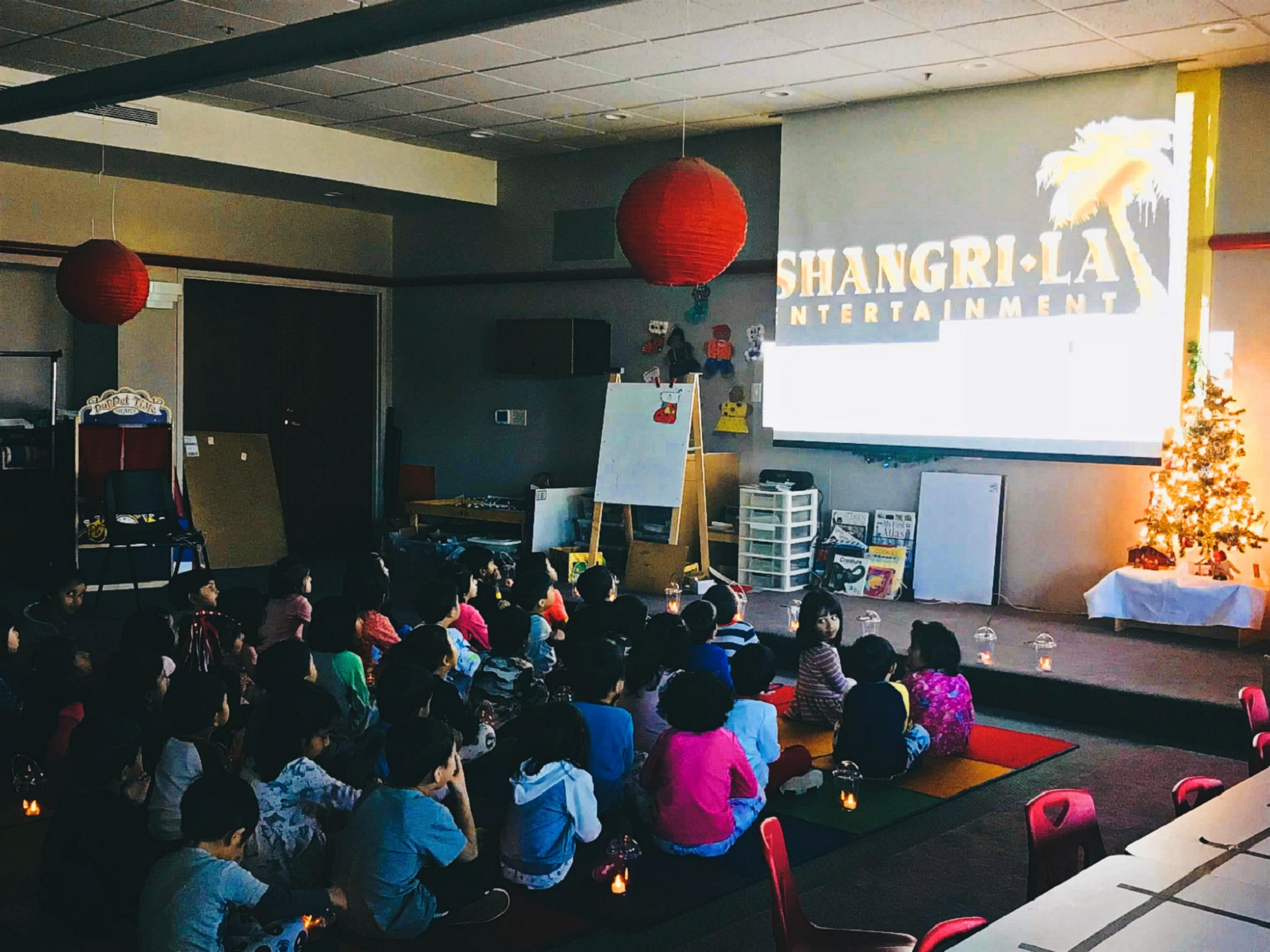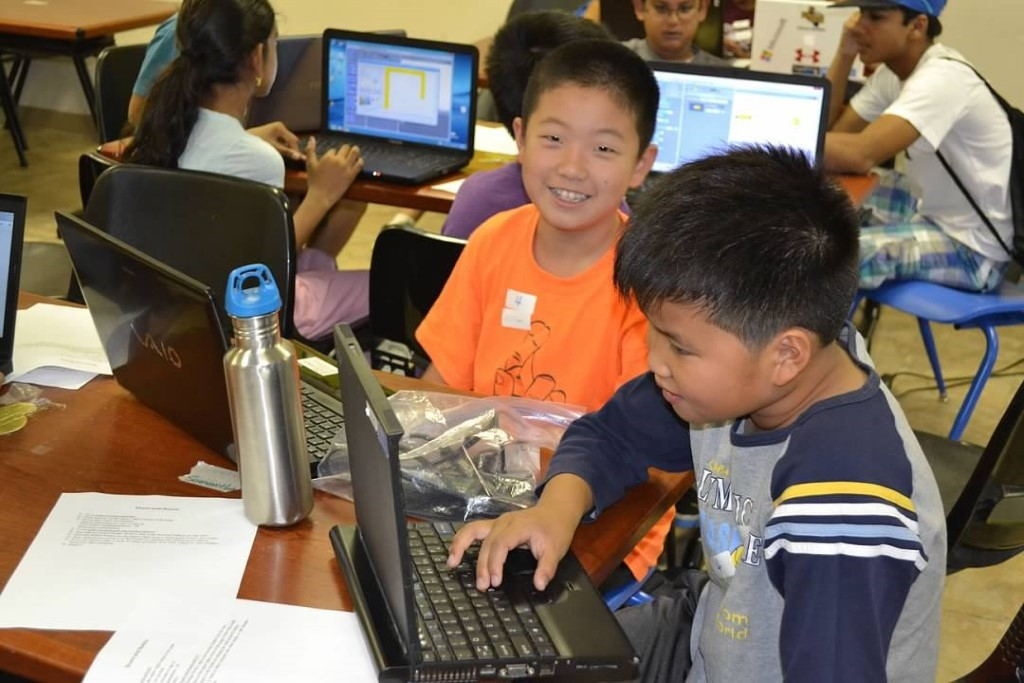
Technology Integration at Yang Fan Academy’s Preschool in Pleasanton
In today’s digital age, technology has become an integral part of our lives, including the field of education. At Yang Fan Academy’s Preschool in Pleasanton, successful technology integration is a cornerstone of the educational experience.
This forward-thinking approach to early childhood education aims to prepare young learners for the many challenges and opportunities of the digital world while maintaining a balanced and holistic learning environment.
The Role Of Technology In Early Childhood Education
In today’s rapidly evolving world, technology has become an integral part of our daily lives. It is no longer limited to computers cell phones and tablets; it encompasses a wide range of digital tools and resources that can enhance the learning process.
At Yang Fan Academy, we recognize that when used thoughtfully and in moderation, technology tools can have a profoundly positive impact on children’s development.
Our approach to integrating technology into early childhood education is grounded in several key principles:
Balanced Use:
- We believe in striking a balance between technology and traditional teaching methods. While technology offers valuable learning opportunities, it should complement, not replace, hands-on and in-person experiences.
Digital Literacy:
- In today’s digital age, digital literacy is a crucial skill. We introduce age-appropriate digital literacy concepts to help children navigate the digital world safely and responsibly.
Collaborative Tools:
- We utilize digital tools that encourage collaboration and communication among children. These tools promote teamwork and social interaction, essential skills for the future.
Monitoring And Safety:
- We maintain a safe and controlled digital environment for children. Our educators closely monitor technology use to ensure age-appropriate content and safety.
Personalized Learning
In the realm of early childhood education research, personalized learning is a game-changer, and tech integration plays a pivotal role in making it a reality.
At Yang Fan Academy, we recognize that each child is a unique learner with their own set of strengths social skills, interests, and learning pace.
Technology allows us to harness this individuality and provide a truly personalized learning experience for every child.
Here’s how personalized learning through technology benefits our young learners:
- Tailored Instruction: With the help of educational software and apps, we can customize learning materials to match each child’s skill level and learning style. Whether a child is an advanced reader or needs additional support in math, technology ensures that they receive the right level of challenge and support.
- Self-Paced Learning: Interactive apps and digital platforms empower children to learn at their own pace. They can revisit concepts they find challenging, spend extra time on topics that pique their interest, and move ahead when they’re ready. This flexibility nurtures a sense of independence and confidence in their abilities.
- Adaptive Learning: Some educational apps and platforms use adaptive algorithms to adjust the difficulty of activities based on a child’s performance. This ensures that children are always challenged at an appropriate level, preventing boredom or frustration.
- Varied Learning Modalities: Personalized learning extends beyond academic subjects. Technology allows us to cater to a child’s interests and strengths, whether that’s through interactive art apps, science simulations, or language-learning games. We tap into their passions to make learning engaging and relevant.
Engagement And Motivation

In the realm of early childhood education, engagement and motivation are the driving forces behind effective learning experiences.
At Yang Fan Academy, we understand that technology can be a powerful ally in creating educational environments that captivate young minds and foster a genuine love for learning.
Here’s how technology enhances student engagement and motivation in our preschool setting:
- Interactive Learning: Digital learning tools are inherently interactive. Whether it’s through touchscreens, interactive quizzes, or virtual simulations, technology encourages active participation.This hands-on engagement makes learning feel like play, holding children’s interest and motivating them to explore further.
- Multisensory Experiences: Educational apps and digital platforms often incorporate visuals, sounds, and even haptic feedback. This multisensory approach appeals to various learning styles, accommodating visual, auditory, and kinesthetic learners. It creates a rich and immersive learning environment.
- Storytelling and Narration: Educational videos and interactive stories often incorporate captivating narratives and narrators. These elements enhance comprehension and make learning more enjoyable.
- Exploration and Discovery: Technology allows children to explore virtual worlds, conduct experiments, and discover new concepts independently. This sense of autonomy and discovery is inherently motivating.
Critical Thinking And Problem-Solving
In the ever-evolving landscape of early childhood education, the cultivation of critical thinking and problem-solving skills is paramount.
At Yang Fan Academy, we recognize that technology-based activities play a pivotal role in nurturing these essential skills, laying the foundation for a future marked by adaptability and innovation.
Here’s how technology fosters critical thinking and problem-solving in our preschool program:
- Puzzle Games: Digital puzzle games, including jigsaw puzzles, Sudoku, and logic puzzles, stimulate problem-solving skills. Children learn to analyze visual and spatial information, devise strategies, and persist in the face of challenges. These activities enhance their ability to approach problems methodically.
- Creative Exploration: Technology tools for creative expression, such as digital art and music apps, empower children to experiment, make choices, and solve creative challenges.These activities encourage innovative thinking and artistic problem-solving.
- Story-Based Adventures: Interactive storytelling apps often present children with decision-making opportunities. They must think critically about the consequences of their choices, fostering an early understanding of decision-making and its outcomes.
Preparation For The Digital Age: Successful Technology Integration

At Yang Fan Academy’s preschool, we recognize that preparing children for the digital age is a fundamental aspect of their education.
Here’s how our technology integration efforts contribute to their readiness for the digital world:
- Digital Literacy: We introduce children to digital devices and tools in a controlled and age-appropriate manner. They learn how to navigate user interfaces, interact with touch screens, and use digital peripherals like mice and keyboards. These early experiences lay the foundation for digital literacy, ensuring that children are comfortable and competent with technology.
- Digital Communication: Children learn how to use digital communication tools appropriately. They practice sending and receiving messages, which can be beneficial for future online communication, such as email and messaging apps. They also develop skills in digital etiquette and respectful online interactions.
- Research Skills: As children explore digital resources, they develop research skills. They learn how to search for information online, evaluate the credibility of sources, and extract relevant information. These skills are valuable for academic research and lifelong learning.
Balanced Approach

At Yang Fan Academy, we understand the significance of maintaining a balanced approach to early childhood education, especially when it comes to technology integration. Our commitment to providing a well-rounded and holistic education is at the core of our philosophy.
Here’s how we strike a balance between technology and other essential components of early education:
- Play-Based Learning: We believe that play is a fundamental aspect of childhood development. Play encourages creativity, social interaction, and problem-solving skills. Our curriculum places a strong emphasis on play-based learning, allowing children to explore, experiment, and use their imaginations. Technology is used to complement play, offering interactive and engaging experiences that enhance learning.
- Hands-On Activities: Hands-on activities provide sensory experiences that contribute to cognitive development. We incorporate hands-on activities into our curriculum, allowing children to explore materials, engage in art and crafts, and conduct simple experiments. These activities offer a tactile and multisensory dimension to their learning.
- Outdoor Exploration: Outdoor play and nature-based activities are integral to our approach. Children have regular outdoor sessions where they can connect with the natural world, engage in physical activities, and experience the benefits of outdoor play. Technology is not a substitute for the sensory richness of outdoor experiences.
- Literacy and Language Development: Reading, storytelling, and language development are essential components of early education. We maintain a strong focus on literacy and language development through books, storytelling, and interactive language activities. Technology is used to enhance language learning through interactive e-books and language apps.
Educators As Facilitators
At Yang Fan Academy, our educators are at the forefront of technology integration in early childhood education. They play a pivotal role as facilitators, ensuring that technology is a valuable and constructive part of the learning experience.
Here’s how our educators fulfill this crucial role:
- Guiding Interactions: Educators guide children’s interactions with technology, providing context and purpose for each activity. They ensure that technology is used as a tool to achieve specific learning objectives. For example, when using educational apps, teachers explain how the app relates to the lesson and what skills or knowledge the child will gain from it.
- Setting Appropriate Limits: Recognizing the importance of balance, educators set appropriate limits on screen time. They follow guidelines that ensure children have a healthy balance between technology-based activities and other forms of learning, such as play, group activities, and outdoor experiences.
- Supporting Creativity: Technology is used to support and enhance creativity. Educators introduce children to creative digital tools, such as drawing apps or multimedia storytelling platforms, that allow them to express themselves artistically and explore their imaginations.
- Balanced Instruction: Teachers strike a balance between technology-based instruction and other forms of learning. They ensure that technology is not a replacement for essential components of early education, such as outdoor play, social interaction, and hands-on activities.
Parent Involvement
At Yang Fan Academy, we recognize the importance of fostering a strong partnership between parents and educators when it comes to technology integration in early childhood education.
We actively involve parents in the process, promoting a collaborative approach that ensures alignment in our goals for technology use.
Here’s how we encourage parent involvement in their child and teacher’s digital learning journey:
Orientation And Information Sessions:
We host orientation and information sessions for parents to introduce them to the digital tools and resources we use in the classroom. These sessions provide an overview of the educational apps, software, and devices we employ to enhance learning.
Parents have the opportunity to visit, ask questions and gain a deeper understanding of our technology-based curriculum.
Transparency And Communication:
Open and transparent communication is key. We maintain regular communication channels with parents, keeping them informed about the technology activities their child will be engaged in.
We provide details on the educational objectives of these activities in schools and how they align with our curriculum.
Parent Feedback:
We value parent feedback and input. Parents are encouraged to share their observations, concerns, and suggestions regarding technology use in the classroom. This feedback loop allows us to continuously improve our approach and address any concerns promptly.
Accessibility:
We ensure that technology resources are accessible to all families, regardless of their background or resources. We work to bridge the digital divide and provide support and training to families who may need assistance with technology access.
In conclusion, technology integration at Yang Fan Academy’s Preschool in Pleasanton is a thoughtful and purposeful approach to early childhood education.
It offers numerous benefits, including personalized learning, engagement, critical thinking, creativity, and preparation for the digital age.
Importantly, it is part of a balanced educational experience that values the holistic development of each child.
By embracing technology as a tool for learning, Yang Fan Academy empowers students and young learners to thrive in the digital age while preserving the essential elements of childhood education.
